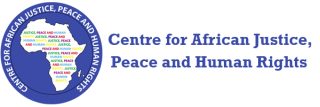Report by Magdalini Bakali and Azizat Sulaimon
The International Development Law Organization (IDLO) hosted a webinar on the 8th of October 2020 which was an avenue to share information on the impact of COVID 19 in the judicial section. The regional impact of COVID 19 and adaptive measures implemented were discussed by representatives from Uganda, Rwanda, Kenya, and Tanzania as they share their experiences and gave recommendations for appropriate and practical response strategies to aid the access to justice. Some of the speakers were Hon. Judith Omange- Registrar of the High Court in Kenya, Dr. Conrad Bosire- Ag. Executive Director for the National Council on Administration of Justice in Kenya, Mr. Andrews Kananga- Executive Director for the Legal Aid Forum in Rwanda, Hon. Justice Janes Frances Abodo- Director of Public Prosecutions in Uganda, Ms, Pheona Wall- President of the Uganda Law Society (ULS), Ms. Tike Mwabipile- Executive
director of the Tanzania Women Lawyers Association (TAWLA).
All speakers gave interesting presentations on the subject matter. The Honorable Justice Jane France Abodo from Uganda, in her presentation, mentioned that in Spring 2019 when Uganda went into lockdown as a response to the ongoing pandemic, the ODDP (Office of the Director of Public Prosecutions) was named non-essential so only 5% of the budget was released. In the fight against COVID- 19, there was a big effort to decongest prisons. Work from home was implemented and an e-filing method for judicial cases was introduced. Due to the lack of available technology for employees though, only 30% of the judiciary in the country could operate. As a response to that, they got 25 donated laptops and 10 of them were given to departments that were working with gender-based
violence related crimes because that category of crimes was given priority.
The next speaker, Dr. Conrad Bosire from Kenya spoke about Covid-19 and the response in his country. On March 5 th, 2020, the Chief Justice created a committee consisting of all justice institutions to monitor the situation of COVID-19. Also, several decisions were made. A rapid decongestion of prisons between March and the present day (October,8) led to the release of 13,000 prisoners. The actions that took place for the decongestion of prisons, included the review of cases for prisoners who had less than 6 months and a review of the cases of people who were remanded in custody. These cases were first reviewed by magistrates in lower courts, people’s families were contacted, and their bonds were reviewed for their release. Since courts were not operating, those arrested for minor offenses were given police bonds so the physical arrests were discouraged. Only serious offenses like murder, armed robbery, and sexual violence were physically taken in. Dr. Conrad stated that there was a rise in gender-based and sexual offenses during the lockdown. Civil society organizations and the police took the initiative to confront and address the problem. He also shared that an e-filing initiative was introduced for judicial matters.
Discussions from other speakers were on how COVID 19 affected the access to justice and the measurement put in place for effective access to justice, such as hotlines for easy contact between staff members and clients. Speakers explained how effective the hotlines were during the lockdown. Mr. Andrews gave a detailed presentation on the use of the call center service available for easy access to legal aid and services as well as the method provided for achieving effective communication. Further presentations were on the effect of COVID 19 on Women. Women have been the most affected by the pandemic not only because their means of livelihood was disrupted, but also because they were victims of Gender-Based Violence. There was a rise in GBV and many women could not access legal services because of the lockdown and legal services were not considered essential services. Ms. Tike explained how difficult it was for women to access justice, mostly because they depend on legal aid clinics, and most of the clinics were closed. She alighted that most of the countries did not have policies put in place and as a result were not prepared to handle the situation.
